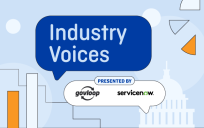In an environment with decreasing resources and often increasing expectations for government performance, local government innovators are springing up in cities across the country. The three panelists for this session are working to make “government a platform”, providing the tools for citizens to engage with the city, tools which can be utilized to provide important feedback and promote volunteerism within their communities. This sessions panelists are:
Kevin Curry
Program Director, Code for America Brigade
Nigel Jacob
Co-Chair, Boston Mayor’s Office of New Urban Mechanics, City of Boston
Jeff Friedman
Manager, Civic Innovation & Participation, Office of the Mayor, City of Philadelphia
The panel, moderated by Andreas Addison, the Civic Innovation Team Manager for the City of Richmond, VA, discussed a wide range of topics within civic engagement and open innovation. They discussed success stories in their cities, the power of citizen engagement, and strategies for bringing open innovation to new cities.
As Nigel Jacob discussed, the city of Boston has been on the frontier of open innovation. One of their successes that Jacob discussed is the “Adopt a Hydrant App” that evolved from a discussion with the Fire Department regarding their needs. From that conversation, they learned that during the winter, critical minutes were being wasted as fire fighters were digging out fire hydrants from snow banks. The app they developed in response allowed citizens to take ownership of a fire hydrant near them and “adopt” it, taking on responsibility for clearing it from snow. This idea has spread across the country; because it uses open source coding, it has been adapted by other cities such as Honolulu, using the technology to “adopt” hurricane sirens and ensure the batteries are working.
In the city of Philadelphia, Jeff Friedman expanded upon their movement toward open innovation, as well as its culmination in Mayor Nutter’s signing of the Open Data Executive Order, which will enhance the transparency of city data sets. When brainstorming ideas back in 2010, Friedman said they couldn’t have imagined that it would result in this executive order, or have the current level of support. Building a movement and ensuring that support within local government and local communities are both moving forward was integral to this achievement.
While some cities have built up support within their local governments, the panelists had several pointers for bringing open innovation to more cities across the country. As mentioned by Kevin Curry, one of the first steps is creating a space to get everyone to the table – key stakeholders in government and from the local community. As he pointed out, now that open innovation has begun in other cities, the risk of trying it out is somewhat mitigated. There are many success stories that can be pointed to as examples of open innovation done right. Finally, as Jacob mentioned, focusing on small wins to build support and pique interest is a way to build support from key stakeholders.
Other takeaways from the panel included:
- Engaging the public in their space – if you need feedback on transportation, pose questions on the subway platform.
- Use apps and new technology as an additional way for engagement, not a replacement for other methods – expanding reach to more audiences
- Build momentum – small applications like “Adopt a Hydrant” can build citizen engagement to help tackle bigger issues that are of importance to the community
- Manage expectations through the questions asked – scale questions appropriately so you can actually respond




Leave a Reply
You must be logged in to post a comment.